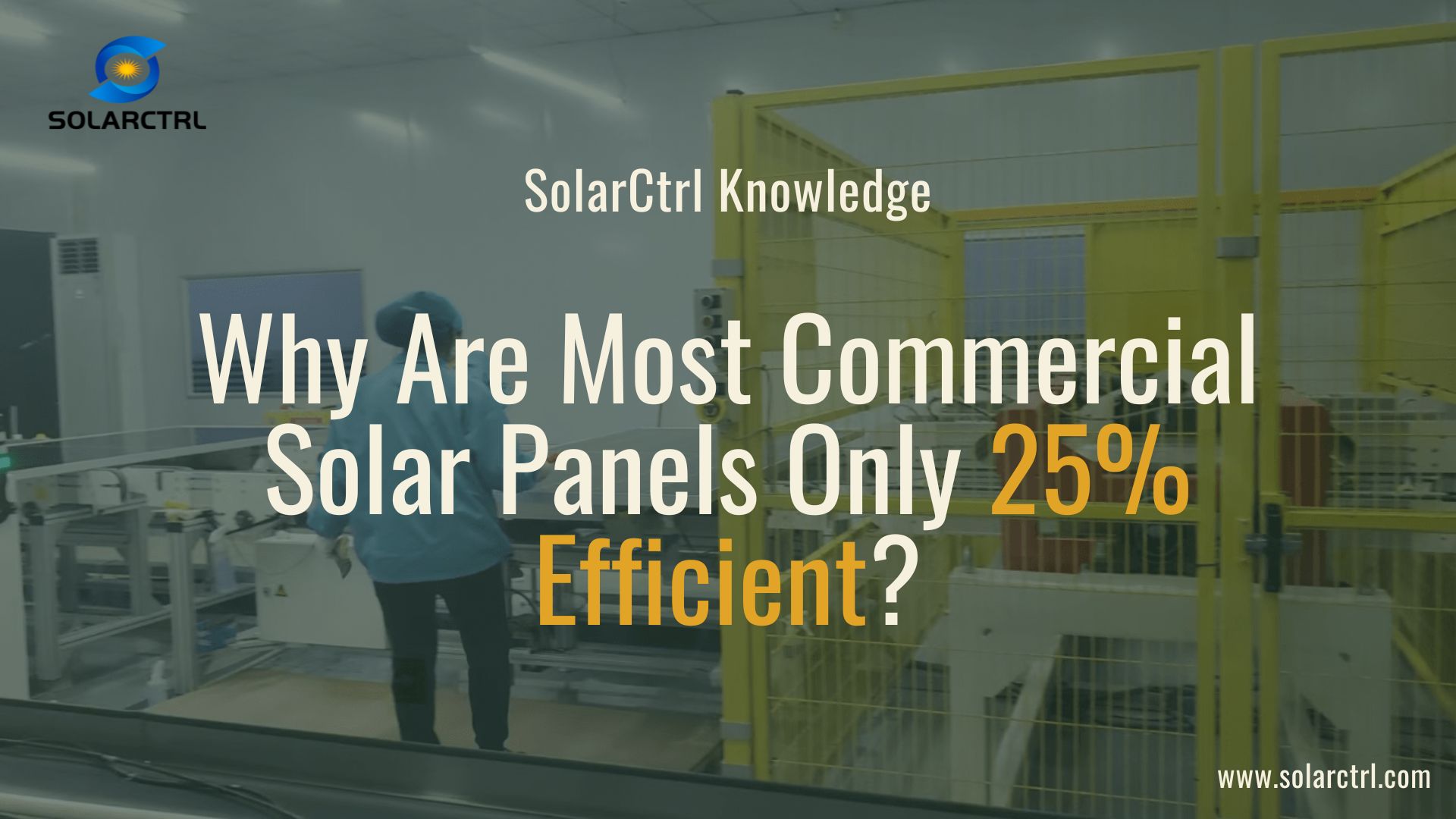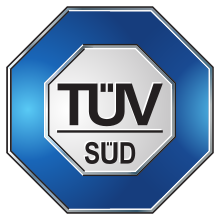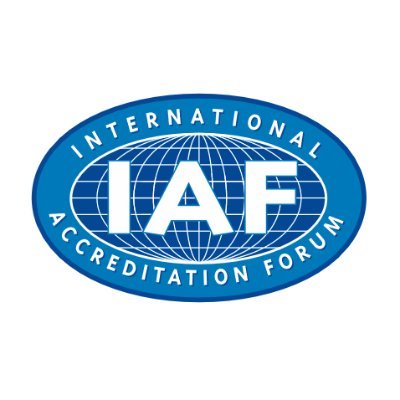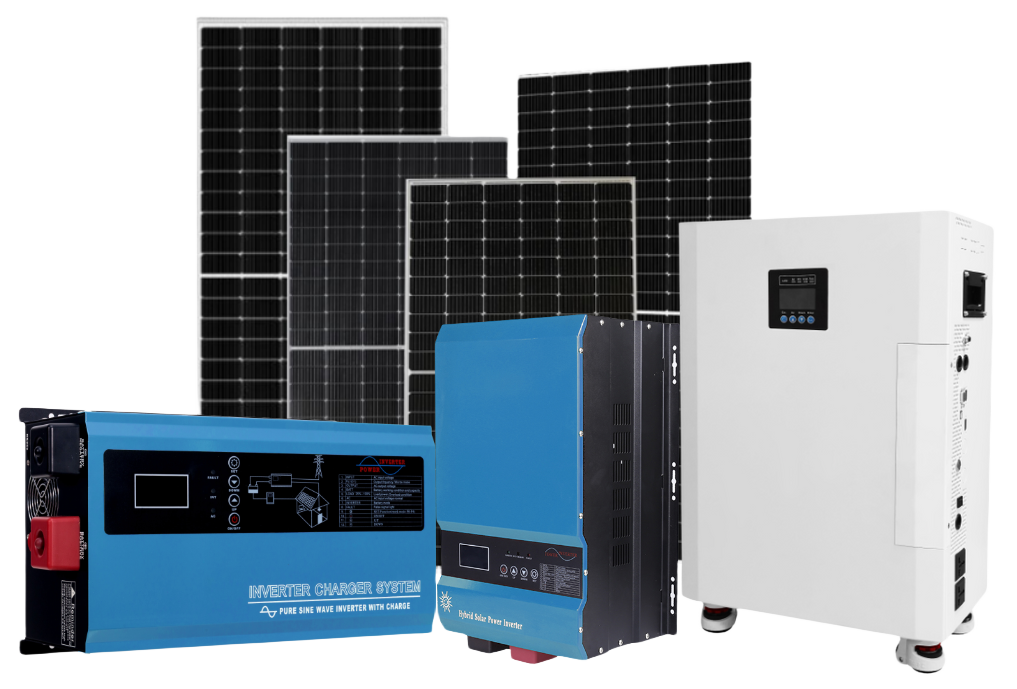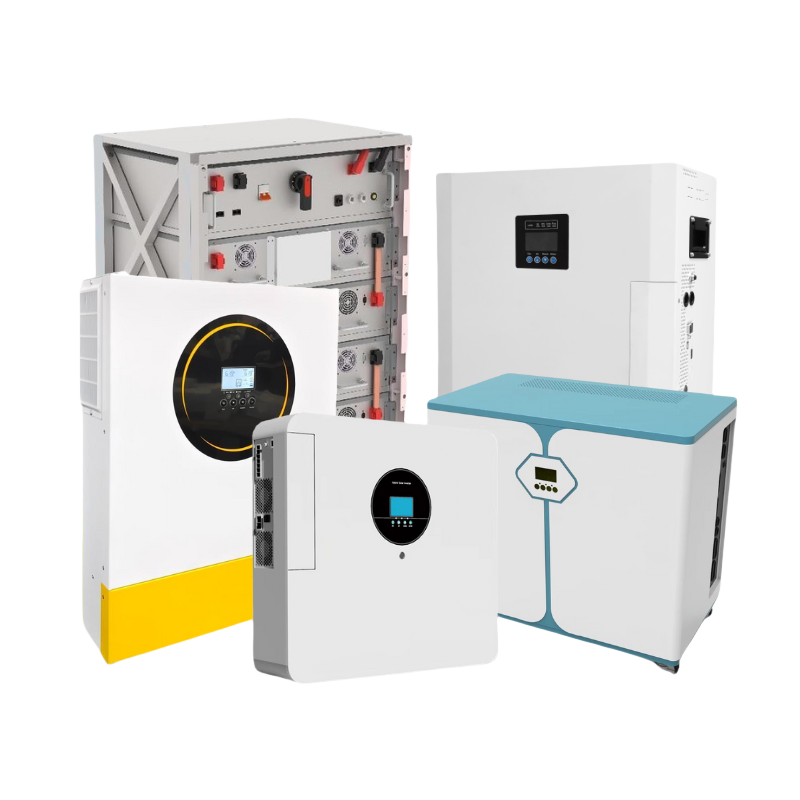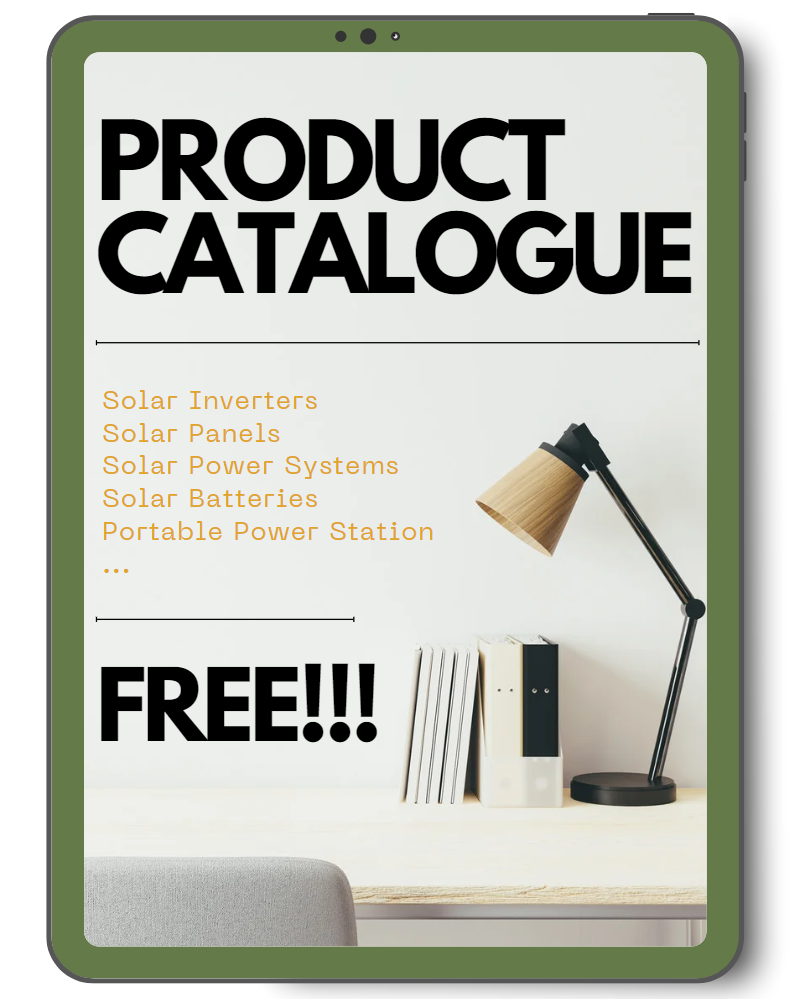Introduction
In the rapidly evolving world of renewable energy, solar panels stand at the forefront of sustainable solutions. However, navigating the intricate landscape of solar panel certifications and installer qualifications can be daunting.
This comprehensive guide demystifies the key aspects of solar panel certifications, testing standards, and the qualifications required for installers. It serves as an essential resource for anyone looking to delve into the solar industry, whether as a consumer, installer, or enthusiast.
Part 1: Importance of Certifications
Certifications in the solar panel industry hold paramount importance. Their role extends beyond mere compliance markers; they are vital indicators of the intrinsic value and reliability of solar panel systems. Certifications inform and influence the purchasing decisions of consumers significantly, assuring them of the product’s quality, safety, and environmental impact.
1.1 Quality Assurance
Certifications are more than just badges; they are a testament to the quality and reliability of solar panels. These certifications ensure that the products conform to international standards set by authoritative bodies.
This compliance reduces the risk of encountering panels that fail prematurely or underperform, which is crucial given the significant investment solar panels represent.
When a product boasts certifications, it assures consumers that the product has undergone rigorous testing and meets or exceeds the required thresholds for efficiency, durability, and performance.

1.2 Safety and Reliability
In the realm of solar panels, safety certifications are indispensable. These certifications signify that a product has been tested for safety risks, including electrical and fire safety, and has been found compliant.
This is crucial for both residential and commercial installations, as it directly impacts the safety of the property and its occupants.
1.3 Long-Term Investment
Solar panel installations are long-term investments, often with expected lifespans of several decades. In this context, certifications that attest to a product’s durability and consistent performance under various environmental conditions become significantly important.
These certifications mean that consumers are investing in a product that will deliver sustained performance over time, ensuring a return on investment and contributing to long-term savings and efficiency.
1.4 Environmental Responsibility
In an era where environmental sustainability is of paramount importance, many consumers are not only interested in the efficiency of solar panels but also in their environmental footprint.
Certifications indicating low environmental impact during manufacturing, operation, and at the end-of-life disposal stage play a critical role in the purchasing decisions of environmentally conscious consumers.
These certifications align with the ethos of sustainability, ensuring that the use of solar panels contributes positively to environmental conservation efforts.
Part 2: Key Aspects of Solar Panel Testing
Solar panel testing encompasses a range of criteria that are essential for determining their efficiency, reliability, and environmental impact. Each aspect of testing plays a pivotal role in ensuring that solar panels meet the highest standards of performance and safety.
2.1 Efficiency Ratings
This is a critical measure of a solar panel’s ability to convert sunlight into usable electricity. Higher efficiency ratings mean that the solar panel can generate more power from the same amount of sunlight compared to panels with lower efficiency.
This metric is particularly important for installations where space is limited, as more efficient panels generate more power per square foot of space used.
Testing for efficiency ratings involves assessing the panel’s output under standard test conditions, giving users a reliable benchmark for comparing different models.
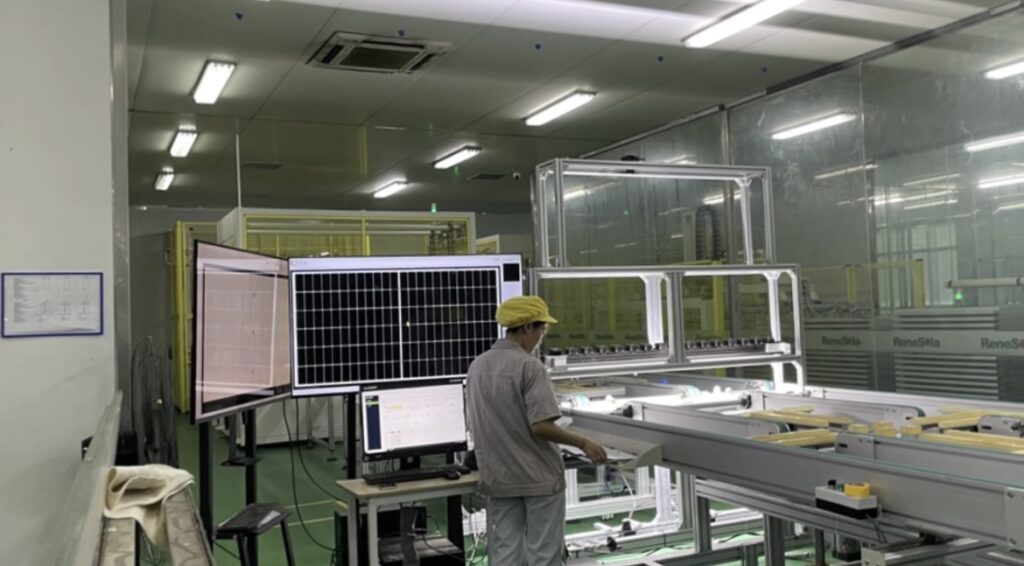
2.2 Performance at Low Irradiance
Solar panels are often subjected to varying light conditions, not just bright, sunny days. Therefore, their ability to perform effectively under low irradiance, such as during overcast days or in geographical areas with less intense sunlight, is crucial.
This testing aspect evaluates how well a panel can maintain its efficiency and energy output under such conditions.
Panels that excel in low irradiance performance offer more consistent and reliable power generation, making them suitable for a wider range of climates and weather conditions.
2.3 Green Certifications
As global awareness of environmental issues increases, the demand for eco-friendly solar solutions has risen. Green certifications are awarded to solar panels that have a reduced environmental impact throughout their lifecycle, from manufacturing to disposal.
These certifications consider factors like energy use in production, the use of hazardous materials, and the recyclability of components.
Panels with green certifications are not just beneficial for the environment; they also resonate with environmentally conscious consumers who are looking to reduce their carbon footprint.
2.4 RoHS Compliance
The Restriction of Hazardous Substances (RoHS) compliance is another essential aspect of solar panel testing. This EU directive restricts the use of specific hazardous materials found in electrical and electronic products.
Ensuring that solar panels are RoHS compliant means they are free from these harmful substances, which is crucial for both environmental and human health.
RoHS compliance reduces the risk of toxic exposure during both the panel’s use and at the end of its life when it is disposed of or recycled.
Part 3: Major Testing and Certification Bodies
In the world of solar panel technology, several key certification bodies play a pivotal role in establishing and maintaining standards for quality, safety, and efficiency. These organizations are renowned globally for their rigorous testing methodologies and their certifications are often seen as a mark of excellence in the solar industry.
3.1 International Electrotechnical Commission (IEC)
Recognized worldwide, the IEC is instrumental in setting universal standards for all electrical, electronic, and related technologies, including solar panels.
Their certifications, such as IEC 61215 and IEC 61730, are considered benchmarks in the industry. They focus on various aspects like performance, safety, and durability of solar panels.
The IEC’s standards are developed through a consensus process that involves experts from all around the world, ensuring that their certifications reflect the latest in technology and safety requirements.
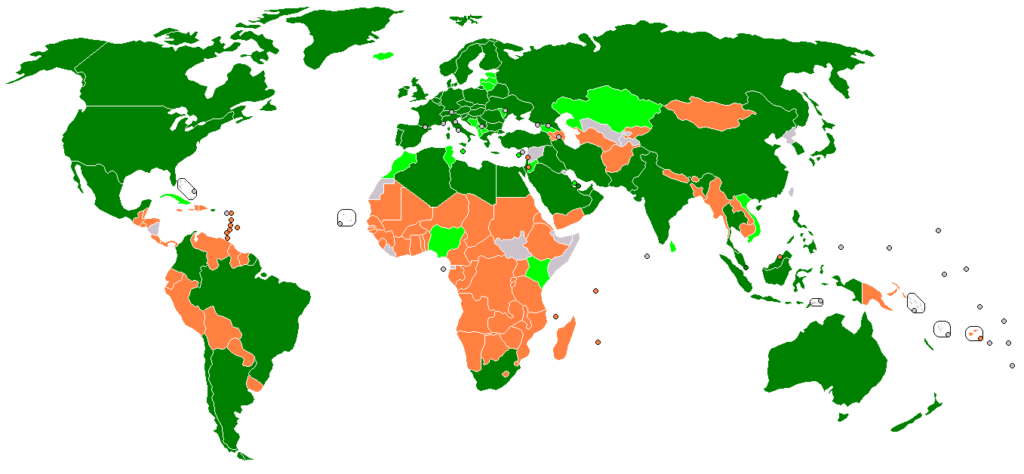
3.2 Underwriters Laboratories (UL)
Based in the United States, UL is a leader in safety science. It provides critical benchmarking for the safety and performance of solar panels and related products.
UL certifications, such as UL 1703 for solar panels, are focused on ensuring that products meet stringent safety standards, particularly in terms of fire safety and electrical hazards.
Their testing process is comprehensive, involving thorough examination of product design and rigorous stress tests to ensure reliability under various conditions.
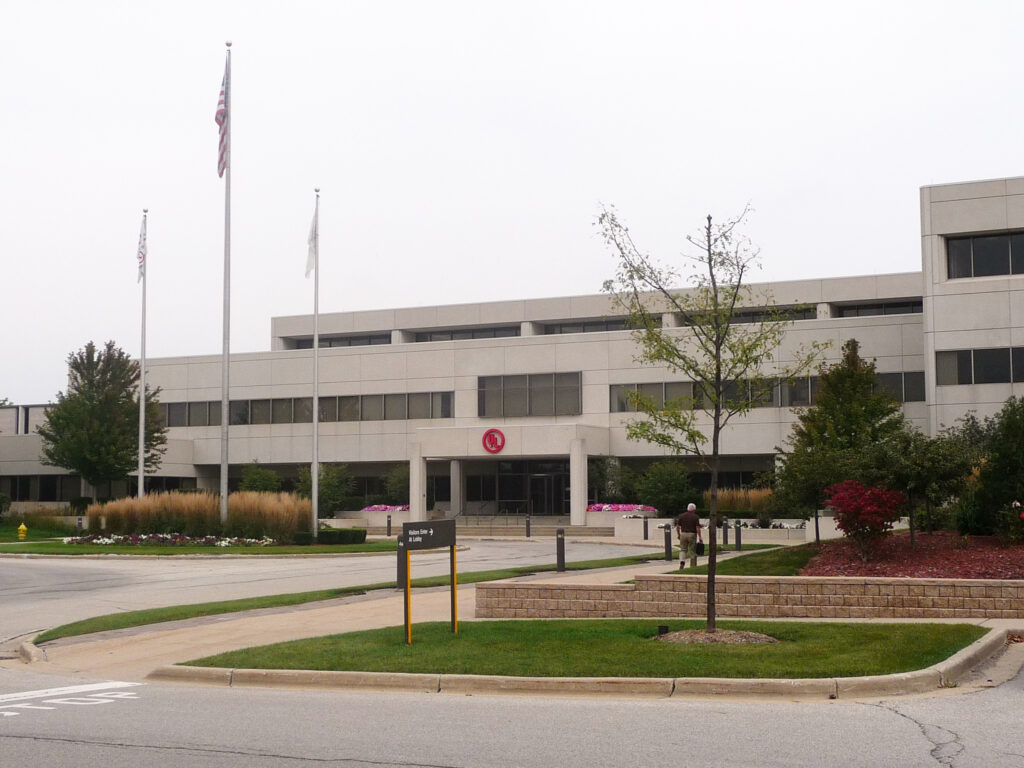
3.3 TÜV Rheinland and TÜV SÜD
These German organizations are renowned for their stringent testing and certification processes. They offer a range of services, including testing for performance, safety, and quality of solar panels.
The TÜV certifications are recognized globally and are often sought after for their detailed assessment processes. They not only certify the products but also audit the manufacturing processes, adding an extra layer of quality assurance.
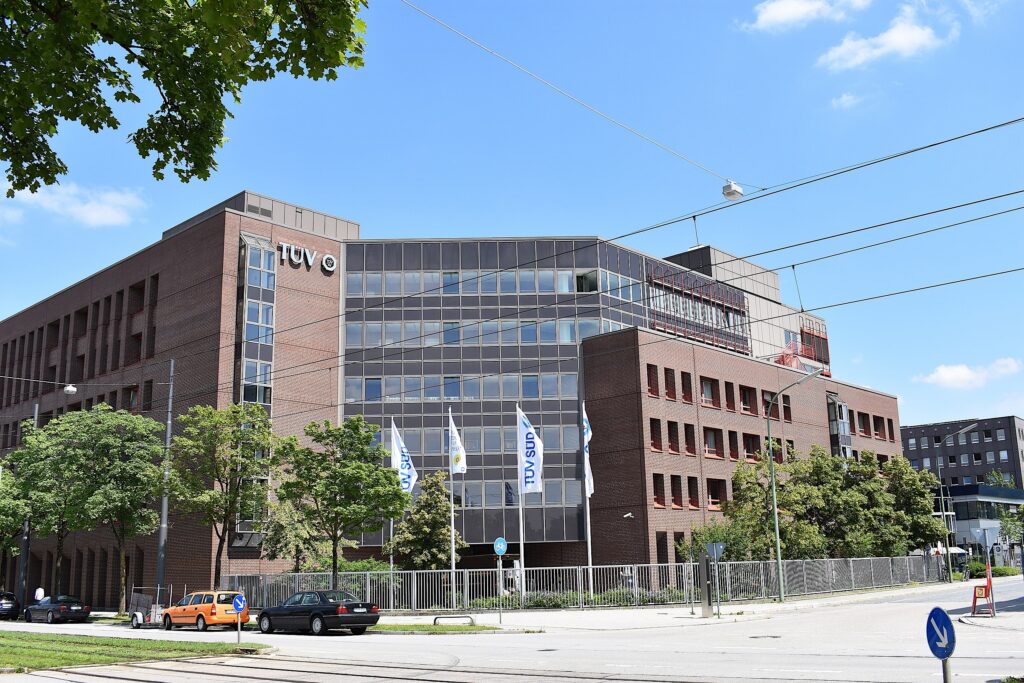
3.4 CE Marking
The CE mark is a mandatory conformity marking for certain products within the European Economic Area. It indicates that a product meets EU safety, health, and environmental protection requirements.
For solar panels, the CE mark demonstrates that the product complies with the relevant European directives and regulations.
This certification is crucial for manufacturers looking to market their products in Europe, as it signifies compliance with the highest standards set by the European Union.
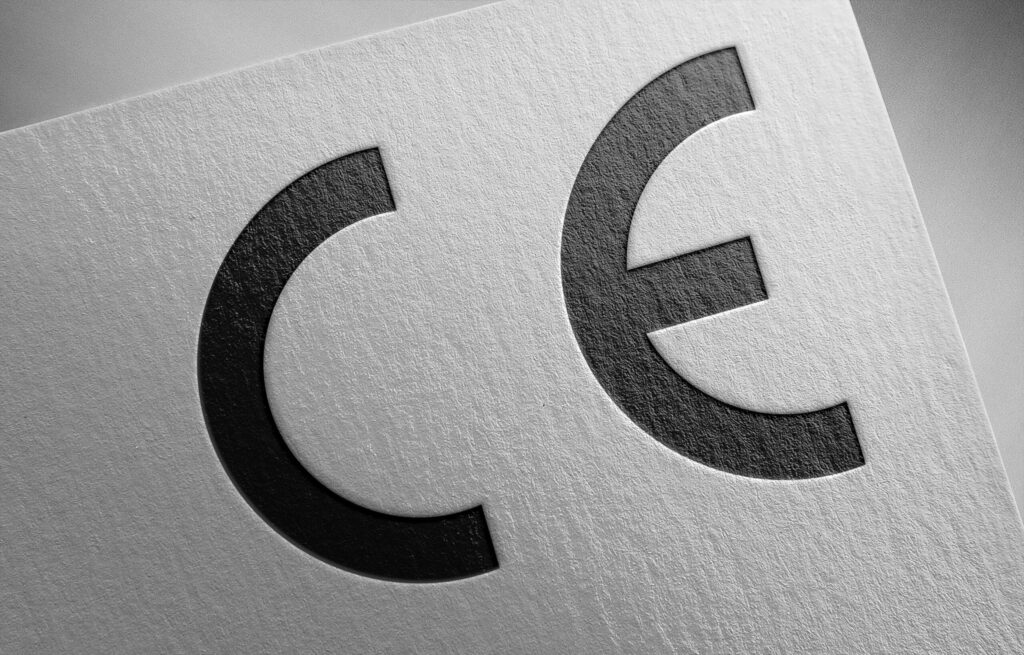
Part 4: Common Solar Panel Certification Standards
Solar panel manufacturers must adhere to various international and regional certification standards, which serve as benchmarks for quality, safety, and performance.
These certifications are not only crucial for market access but also play a significant role in instilling consumer confidence and ensuring compliance with global best practices.
4.1 IEC: International Electrotechnical Commission
IEC is a key organization in the solar panel industry, establishing international standards for electronic devices, including photovoltaic (PV) panels. The IEC is notable for setting the standards rather than conducting the tests themselves. Among its widely recognized standards are IEC 61215 and IEC 61730.
IEC 61215: Focused on crystalline silicon terrestrial PV modules, this standard is fundamental for residential solar panels. It includes tests for electrical characteristics, mechanical load (like wind and snow), and various climate challenges (including UV exposure and temperature extremes).
This standard ensures that solar panels can withstand diverse environmental conditions without compromising their performance or safety.
IEC 61730: This standard is crucial for assessing the overall safety of solar panels. It encompasses a comprehensive analysis of the construction and electrical design of PV modules.
Testing includes evaluating risks of electrical shock, mechanical failures, and thermal hazards. Panels that pass these tests are considered safe for use, minimizing potential hazards.
IEC 62716: Tailored to assess a solar panel’s resistance to ammonia corrosion, this standard is particularly relevant in agricultural settings where ammonia exposure is common.
Panels that pass this test maintain their efficiency and longevity, even in environments with high ammonia levels.
IEC 61701: This standard evaluates a panel’s resistance to salt mist corrosion, an important consideration for coastal installations or areas with high salinity exposure.
It involves testing panels with salt sprays and inspecting them for physical and electrical damage to ensure they can endure such harsh conditions.
IEC 60068-2-68: Designed to test a panel’s durability in sandy or dusty environments, this standard is crucial for installations in desert areas.
It assesses how well panels withstand exposure to abrasive sand, which can otherwise cause wear and reduce the panel’s effectiveness over time.

4.2 UL: Underwriters Laboratories
A North American safety certification, UL standards like UL 1703 specifically focus on the safety aspects of solar panels. This includes rigorous testing for fire safety and electrical hazards.
UL 1703: UL 1703 is a widely recognized industry standard focusing on the safety and performance of solar panel modules. It involves simulated climatic and aging tests, evaluating panels for safety concerning mechanical loads, fire, and electrical hazards.
This certification is particularly mandated for solar panels sold and installed in North America, and is often listed alongside IEC 61730 on solar panel spec sheets, indicating its widespread recognition and applicability.
UL 61730: UL 61730 is a more recent standard that merges the testing procedures and criteria of UL 1703 with IEC 61730, facilitating international approval regarding a solar panel module’s safety and performance.
This certification is becoming increasingly common as it offers a more cost-effective testing option for manufacturers, especially those planning to market their products in both North American and international markets.
By undergoing UL 61730 testing, manufacturers can reduce the number of panel samples needed, thereby decreasing testing time and costs.
4.3 ISO 9001
The ISO 9001 certification is not specific to solar panels but is a crucial indicator of a manufacturer’s commitment to maintaining high standards in their production processes.
This certification relates to quality management systems and is about ensuring consistent product quality. It covers various aspects of production, including product design, manufacturing, testing, and after-sales service.
For solar panels, this certification ensures that each unit produced meets the same high standards for efficiency, durability, and safety.
4.4 CE Marking
Mandatory for products sold within the European Economic Area, the CE Marking is a declaration by the manufacturer that their product complies with EU health, safety, and environmental protection directives and regulations.
For solar panels, this marking indicates that the product has been tested and meets EU standards for safety, electromagnetic compatibility, and other key factors. It’s a crucial certification for market access in Europe and is widely recognized and respected.
Part 5: Qualifications for Solar Panel Installers
The qualifications required for solar panel installers are crucial for ensuring safe and efficient installations. Here’s an expanded view of these requirements:
5.1 NABCEP Certification
The North American Board of Certified Energy Practitioners (NABCEP) is a leading certification body for solar professionals. Their certifications, such as the PV Installation Professional (PVIP) certification, are highly respected and cover a comprehensive range of knowledge and skills required for solar installation.
NABCEP certifications often involve rigorous training, examinations, and ongoing education to stay updated with industry standards.
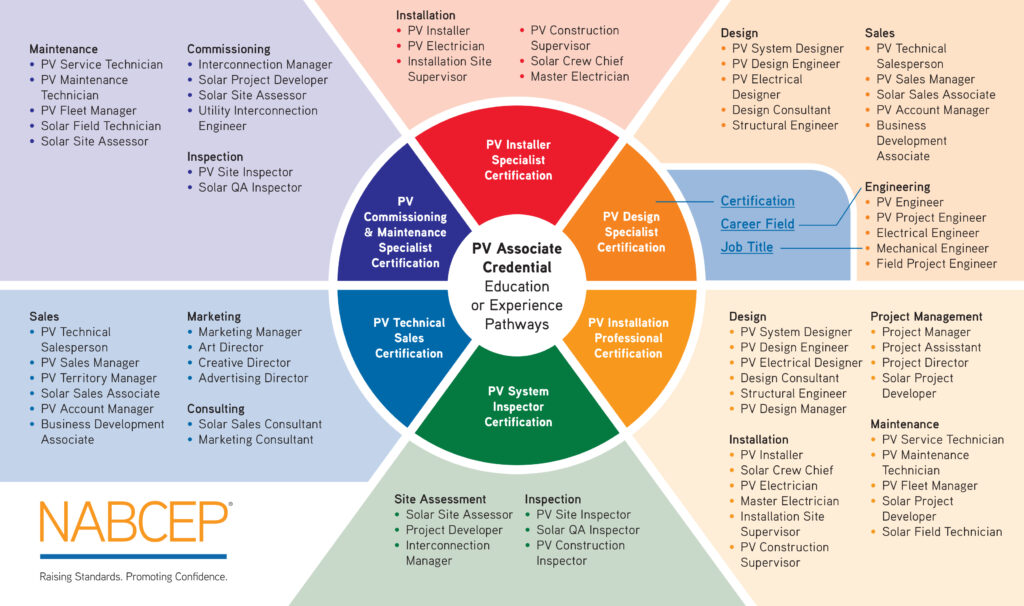
5.2 Electrical Licenses
Many regions mandate that solar panel installers hold a valid electrical contractor’s license. This requirement ensures that installers have the essential electrical knowledge and skills to safely connect solar panels to buildings and electrical grids.
Obtaining an electrical license typically involves a combination of formal education, apprenticeships, and passing licensure exams.
5.3 Local and Regional Certifications
Depending on the region, additional certifications may be required to comply with local building codes and regulations.
These certifications ensure that installers are familiar with specific regional installation standards and environmental conditions. For instance, in some coastal areas, additional qualifications may be needed to install solar panels that can withstand harsh marine environments.
Conclusion
Understanding the complexities of solar panel certifications and installer qualifications is crucial for making informed decisions in the solar industry. These standards and qualifications not only ensure the safety and efficiency of solar installations but also contribute to the reliability and sustainability of solar energy systems.
As a company dedicated to promoting solar energy, SolarCtrl emphasizes the importance of adhering to these standards and encourages ongoing education and compliance in the field, ensuring that solar energy continues to be a reliable and sustainable energy source for the future.
Explore SolarCtrl’s offerings, engage in our educational programs, and be part of a sustainable energy solution for a brighter tomorrow.






